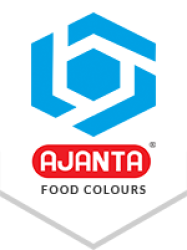_1750945931.jpg)
The Food Safety and Standards Authority of India, in short FSSAI, is a governmental body that regulates the use of food additives such as sweeteners, preservatives, glazing agents, antioxidants, and colours in products. Colour is a crucial component that gives an appealing look to a range of products, including food, beverages, cosmetics, and pharmaceuticals, attracting consumers and boosting sales.
In this article, we are going to discuss the latest list of FSSAI colours and which colour is suitable for your product, so stay with us!
What Are FSSAI-Approved Colours?
Colours, whether natural or synthetic, that have been tested and approved by the Food Safety and Standards Authority of India (FSSAI) for use in food and related products are known as FSSAI-approved food colours. These colours must comply with the standards that are written in the Food Safety and Standards (Food Products Standards and Food Additives) Regulations, 2011, which were framed under the Food Safety and Standards Act, 2006.
Synthetic food colours are more likely to be used compared to natural food colours, as they capture 70% of the food market in India. Each permitted colour has an INS number (International Numbering System) and a specific use limit which is based on the type of the product.
List of FSSAI Approved Synthetic Colours
The FSSAI approved 8 synthetic food colours for use in India. Let’s take a closer look to these colours, its INS codes, and some applications on which they are commonly used:
| Colour Name | INS Number | Common Usage |
| Tartrazine | 102 | Beverages, Sweets, Bakery Items |
| Sunset Yellow FCF | 110 | Soft Drinks, Snacks, Jams |
| Carmoisine | 122 | Ice Creams, Desserts, Confections |
| Ponceau 4R | 124 | Candies, Bakery, Beverages |
| Erythrosine | 127 | Glazed Cherries, Cake Decorations |
| Allura Red AC | 129 | Soft Drinks, Jelly, Syrups |
| Brilliant Blue FCF | 133 | Ice Pops, Milk Products, Candy |
| Indigo Carmine | 132 | Capsules, Sweets, Bakery Products |
These permitted synthetic colours are widely used across multiple industries, from food and beverages to pharmaceuticals and dairy.
What Do the FSSAI Guidelines Say?
Here are a few rules that manufacturers must follow during the manufacturing of their products:
- Only use the colours that are in the FSSAI-approved list
- Stick to maximum allowed limits, its generally 100 ppm
- Mention INS numbers clearly on labels
- Do not mix unauthorised or excess quantities
- Always maintain proper documentation
Manufacturers who are using non-compliant colours in their products can face heavy penalties, product recalls, or even cancellation of their FSSAI license.
Why It’s Important to Stay Updated
FSSAI frequently updates its regulations on food colours, including the list of permitted additives, usage limits, and compliance requirements based on global food safety research. For Food, cosmetic and pharmaceutical industry manufacturers, these updates are very crucial in maintaining legal relevance, consumer confidence and brand reputation credibility as well as product quality.
Choosing FSSAI Compliant Colourants
Remember these rules when purchasing colourants approved by FSSAI:
- Always buy from FSSAI registered suppliers
- Ask for certificates of analysis (COA)
- Ensure products are clearly labelled with INS numbers
- Confirm that colours meet Indian food-grade quality standards
By sourcing FSSAI-certified colours from a trusted and reliable synthetic food colour manufacturer in India like Ajanta Food Colours, you can maintain both safety and visual appeal for your products. In today’s world product’s visual appeal and its safety play a crucial role in sales and brand recognition.
Ajanta Food Colours is a leading FSSAI-approved colourants manufacturer in India with over 75 years of legacy. Ajanta uses the latest machinery and technologies in all its manufacturing plants, which ensure the safety and quality of its synthetic food colours. The company received various awards and certificates from India and from other countries where it export synthetic food colours including the Arch of Europe Award, the Bureau of Indian Standards (BIS) Award, certifications from the Food Safety and Standards Authority of India (FSSAI), the US Food and Drug Administration (US FDA), as well as Halal, Alcumus ISOQAR, Star-K Kosher, Food Safety System 22000 (FSSC 22000), and ISOQAR certifications, among others.
Final Thoughts
Being in manufacturing means more than just producing—it’s about being responsible, compliant and quality-driven. By sticking to FSSAI permitted synthetic food colours you ensure your brand earns credibility and trust both from regulators and consumers.
Next time when you take colours for your products, make sure they are FSSAI approved well documented sourced from reliable partner like Ajanta Food Colours because it’s not just about colouring the products, it’s about colouring them right.




